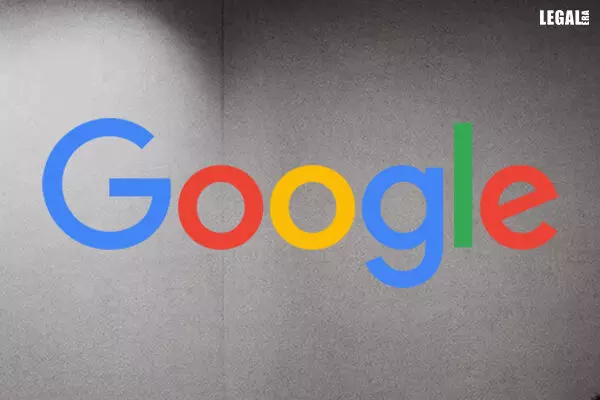- Home
- News
- Articles+
- Aerospace
- Agriculture
- Alternate Dispute Resolution
- Banking and Finance
- Bankruptcy
- Book Review
- Bribery & Corruption
- Commercial Litigation
- Competition Law
- Conference Reports
- Consumer Products
- Contract
- Corporate Governance
- Corporate Law
- Covid-19
- Cryptocurrency
- Cybersecurity
- Data Protection
- Defence
- Digital Economy
- E-commerce
- Employment Law
- Energy and Natural Resources
- Entertainment and Sports Law
- Environmental Law
- FDI
- Food and Beverage
- Health Care
- IBC Diaries
- Insurance Law
- Intellectual Property
- International Law
- Know the Law
- Labour Laws
- Litigation
- Litigation Funding
- Manufacturing
- Mergers & Acquisitions
- NFTs
- Privacy
- Private Equity
- Project Finance
- Real Estate
- Risk and Compliance
- Technology Media and Telecom
- Tributes
- Zoom In
- Take On Board
- In Focus
- Law & Policy and Regulation
- IP & Tech Era
- Viewpoint
- Arbitration & Mediation
- Tax
- Student Corner
- AI
- ESG
- Gaming
- Inclusion & Diversity
- Law Firms
- In-House
- Rankings
- E-Magazine
- Legal Era TV
- Events
- News
- Articles
- Aerospace
- Agriculture
- Alternate Dispute Resolution
- Banking and Finance
- Bankruptcy
- Book Review
- Bribery & Corruption
- Commercial Litigation
- Competition Law
- Conference Reports
- Consumer Products
- Contract
- Corporate Governance
- Corporate Law
- Covid-19
- Cryptocurrency
- Cybersecurity
- Data Protection
- Defence
- Digital Economy
- E-commerce
- Employment Law
- Energy and Natural Resources
- Entertainment and Sports Law
- Environmental Law
- FDI
- Food and Beverage
- Health Care
- IBC Diaries
- Insurance Law
- Intellectual Property
- International Law
- Know the Law
- Labour Laws
- Litigation
- Litigation Funding
- Manufacturing
- Mergers & Acquisitions
- NFTs
- Privacy
- Private Equity
- Project Finance
- Real Estate
- Risk and Compliance
- Technology Media and Telecom
- Tributes
- Zoom In
- Take On Board
- In Focus
- Law & Policy and Regulation
- IP & Tech Era
- Viewpoint
- Arbitration & Mediation
- Tax
- Student Corner
- AI
- ESG
- Gaming
- Inclusion & Diversity
- Law Firms
- In-House
- Rankings
- E-Magazine
- Legal Era TV
- Events
Google Encounters New Multi-Billion Advertising Law Suit

Google Encounters New Multi-Billion Advertising Law Suit
A new lawsuit has been filed against the Tech-giant Google, seeking 3.4 billion pounds ($4.2 billion) as compensation for publishers for lost revenue.
The claim was made by ex-Guardian technology editor Charles Arthur, who alleged Google had unlawfully used its dominant position in online adverts in a way that reduced what publishers could make from them.
Google while vehemently opposing the claims, stated that it would fight the “speculative and opportunistic” action vigorously.
The first lawsuit was filed in November, following which it is the second such lawsuit.
It was filed by the former Ofcom director Claudio Pollack, who was seeking up to £13.6 billion as damages from the tech giant.
The cases concern advertising technology - adtech - that decides in a fraction of a second which online adverts consumers will see, how much they will cost, and how much publishers will earn. Online display advertising is the main source of income for many websites.
In the lawsuit, Mr Arthur claimed that because of Google's abuse of its position, the prices of adtech services were inflated, and ad sales revenues of publishers were unlawfully reduced.
He further stated, “The Competition Markets and Authority (CMA) is currently investigating Google's anti-competitive conduct in adtech, but they don't have the power to make Google compensate those who have lost out. We can only right that wrong through the courts, which is why I am bringing this claim.”
Before the Competition Appeal Tribunal, both legal claims have requested to certify their claims as “opt-out,” meaning every relevant publisher would be automatically included in the case unless they choose otherwise.
These are collective claims, often referred to as a class action in the United States, which only became possible in the UK in 2015. Since, they are brought on behalf of a whole group or class, the damages can be very large.
In spite of the fact that the CMA found Google to be the dominant company in three sectors of adtech, the firm claims there are a variety of competitors to compete with. It also stated that its adtech fees were lower than, or match, industry averages.
However, in January, the US Justice Department accused Google of being an “industry behemoth” that had corrupted legitimate competition in the adtech industry by engaging in a systematic campaign to seize control of the wide swath of high-tech tools used by publishers.
On 4th April, Google while arguing that the US government had overstated its hold on the market had asked the Court to dismiss the case.



